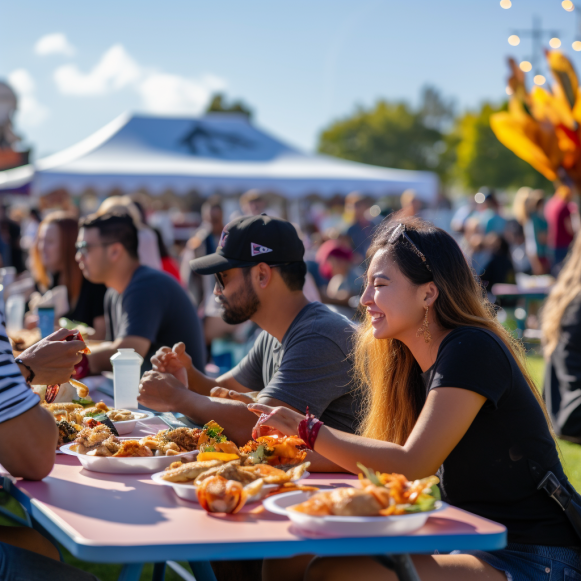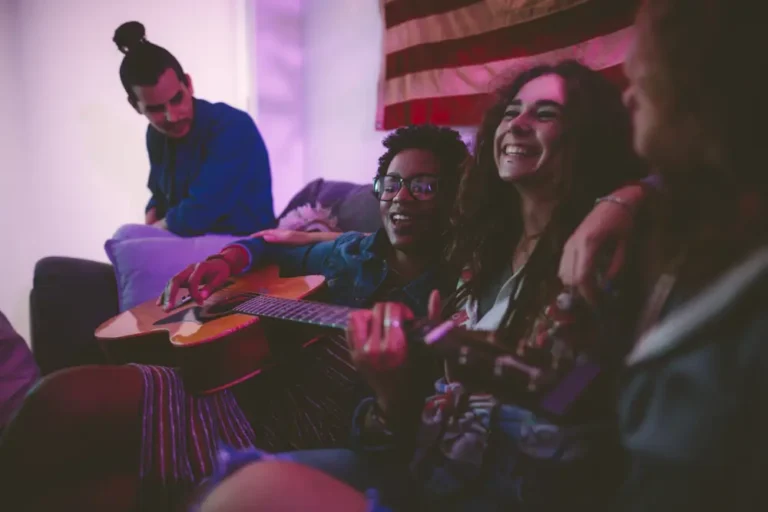San Jose food festival joins cultures and unique recipes

The festival featured dozens of vendors and drew thousands to the fairgrounds
Note from the Editor: This piece was written for Mosaic Vision, an independent journalism training program for high school students who report and photograph stories under the supervision of professional journalists.
Traffic was backed up on Tully Road outside the Santa Clara County Fairgrounds in San Jose, next to a long line of people snaking around its fenced perimeter. They came to attend the FoodieLand Night Market, an outdoor festival held in cities across the West Coast.
People rushed through the open gate at 1 p.m. Saturday, shuffling eagerly through security and into the fairgrounds. Tents with large-lettered signs, colorful displays, and smoking grills awaited them.
On Friday and Saturday, dozens of vendors brought together various recipes and cultures in one place. Every vendor had something unique to offer, whether it was grilled lobsters, yakitori skewers, chocolate-filled churros, or ube-coated turon.
Some of them were veterans. The Ensaymada Project, which sells Filipino brioche bread, operates its own bakery in Newhall, California. The Ensaymada Project, according to the owner’s niece, Paycee Minoya, regularly participates in festivals and local fairs. The 626 Night Market, for example, had linked them to the FoodieLand Festival.
Other vendors were just getting started, and the FoodieLand Festival provided an opportunity for them to find their niche. Nola Oysteria specializes in New Orleans-style grilled oysters with a choice of five different sauces, and they are celebrating their first year in business this year. Manager Natasha Haneoko stated that Foodieland is only their second event, but they are doing well.
The vendors, whether returning veterans or newcomers, offered a diverse range of tastes and cultures, including unusual fusions. Hawaiian-style chicken wings with Asian sauces were served at Fist of Fusion.
The Hawaiian sweet-and-salty trend inspired owner Ronnie Lucido, a Filipino with family in Hawaii. He created these recipes from his home, adding what he called a “Asian zing.” The “kimchi butter” chicken wing, a combination of sweetness and Korean kimchi flavor, is one of his most popular dishes.
Similarly, the Drunken Dumpling differentiates itself from more traditional dim sum restaurants by cooking their dumplings in Vietnamese pho broth.
And for Kimoy Chamoy, they sold eye-catching Korean-Mexican fusion candy, which co-owners James Lee and Micky Shin created. During the pandemic, the two came up with the idea of coating drinks, fruit, and candy with Mexican chamoy sauce. They eventually began marketing these unique chamoy-coated candies with a hint of Korean spices.
The night market promoted their vendors on social media, attracting thousands of people to bring their families and friends. Customers flocked to the tents, milled about the pathways, and sat on benches to eat.
Although the food can be pricey, customers seemed to think it was worth it. CJ Arcoz, who had previously visited FoodieLand and was taking his girlfriend there for the first time, said he didn’t mind the prices — except for the beer — because these types of events are meant to be enjoyed while sampling new dishes.
The FoodieLand experience included more than just food; a merchandise area featured tents selling clothing, handcrafted jewelry, keychains, shoe charms, and other items.
A man stood on a stage singing to Michael Bublé, while four women spun each other around in front of the platform. The FoodieLand Night Market provided an opportunity for local vendors and residents to celebrate diversity and sample food from various cultures.






